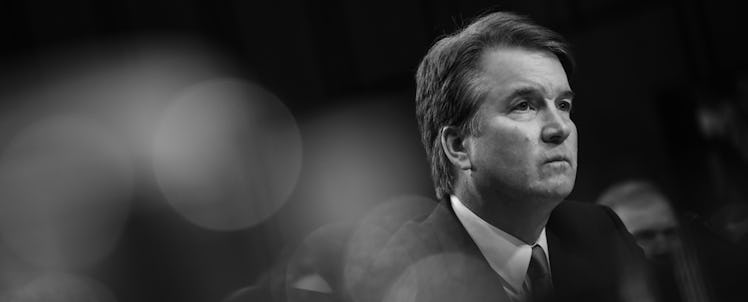Judge Brett Kavanaugh Accusations: High School is Not an Alibi for Sexual Assault
Parents and kids have always believed that high school was the time to make mistakes, but judge Brett Kavanaugh’s accuser shows that’s a lie built on the bodies of young girls.

Judge Brett Kavanaugh has been accused of sexual assault by California professor Christine Blasey Ford. The alleged assault took place in the 1980s when both were in high school. Ford claims that, while drunk at a party, Kavanaugh forced her into a room and used his hand to stifle her screams while grinding against her and tearing at her clothing. Kavanaugh has denied the claims while emphasizing the 30-year gap between incident and revelation. “I did not do this back in high school or at any time,” Kavanaugh said in a recent statement.
“Back in high school” is an interesting phrase and one worth extracting from the scrupulously worded release. The implication of the oddly casual descriptor seems to be that high school is a specific time and place. And that’s how most people talk about high school — as in, “I’m glad we didn’t meet in high school because I was going through a goth stage.” “Back in high school” seems to imply that shit happens in high school because teenagers will be teenagers. This is both true and worthy of interrogation.
Teenagers will be teenagers and teenage boys will be teenage boys. But complacency about that fact casts teenage girls, who are often subject to sexual assault by their peers, in the role of crash test dummies for male sexuality. That’s not fair and it’s a way of filing high school misbehavior in the back of the drawer, which is neither safe nor a good idea. If Kavanaugh perpetrated the crime he is accused of, it still matters. It still reflects on his character and it still informs the perspective and experience of his accuser, Christine Ford.
This may worry some parents who are aware that their kids are likely to make mistakes in high school. It’s worth saying at the outset that “sexual assault” is not a mistake. But it’s also worth saying that, yes, a culture that demands accountability for teenage misdeeds is a culture that demands more from boys and men. There is no way around this. The #MeToo movement and awareness of female trauma generally is moving the bar up. That’s a good thing — a good thing that requires parental alertness.
The problem of the good-natured, kids-will-be-kids view of adolescence (which, incidentally, makes for really fun movies like American Pie and Animal House that don’t age super well) is that it fails to acknowledge that some of the mistakes kids make come with very real trauma. Being young and drunk at a party does not excuse sexual assault. And while time might blunt the edges of the anxiety and pain an assault victim feels, it does not erase the fact of the assault.
The bad behavior of adolescent boys is shrugged off all too often. Young men — specifically young white men — are given a hall pass on horrific behavior because they are perceived to be under the sway of hormones. And, sure, executive function isn’t great during the teen years, but that doesn’t mean a 17-year-old can’t tell right from wrong. It doesn’t mean they shouldn’t have to do exactly that in the context of all their relationships.
The fact is that the only way for a high-school boy to plausibly claim he didn’t know any better is for him to demonstrate that he wasn’t taught. In the case of Kavanaugh, who grew up in a well-to-do suburb, excelled academically, and seems to have had engaged parents, this is unlikely. The debate over the accusations will not head in that direction. Instead, the conversation will be about whether it happened and, if it did, whether that matters. All that can be said of that latter area of discussion is this: Of course it matters. It’s one thing to say that holding men accountable for their childhood misdeeds 30 years later can result in over-reach. It’s another to say that sexual assault ought not to be weighed when assessing fitness for the highest court in the land. That latter claim is obscene.
There are two ways parents should look at Ford’s accusations of Kavanaugh. Optimistically, we can use the news to redouble our efforts to raise good boys, particularly in high-school as they begin to gain a certain amount of autonomy. Because protecting young women and minds and bodies is important.
Cynically, however, many parents may use the news to remind boys that submitting to their urges could stain an otherwise bright future. And maybe that could help too. Even if, ultimately, it’s a lesson that comes at the price of real human suffering.
This article was originally published on